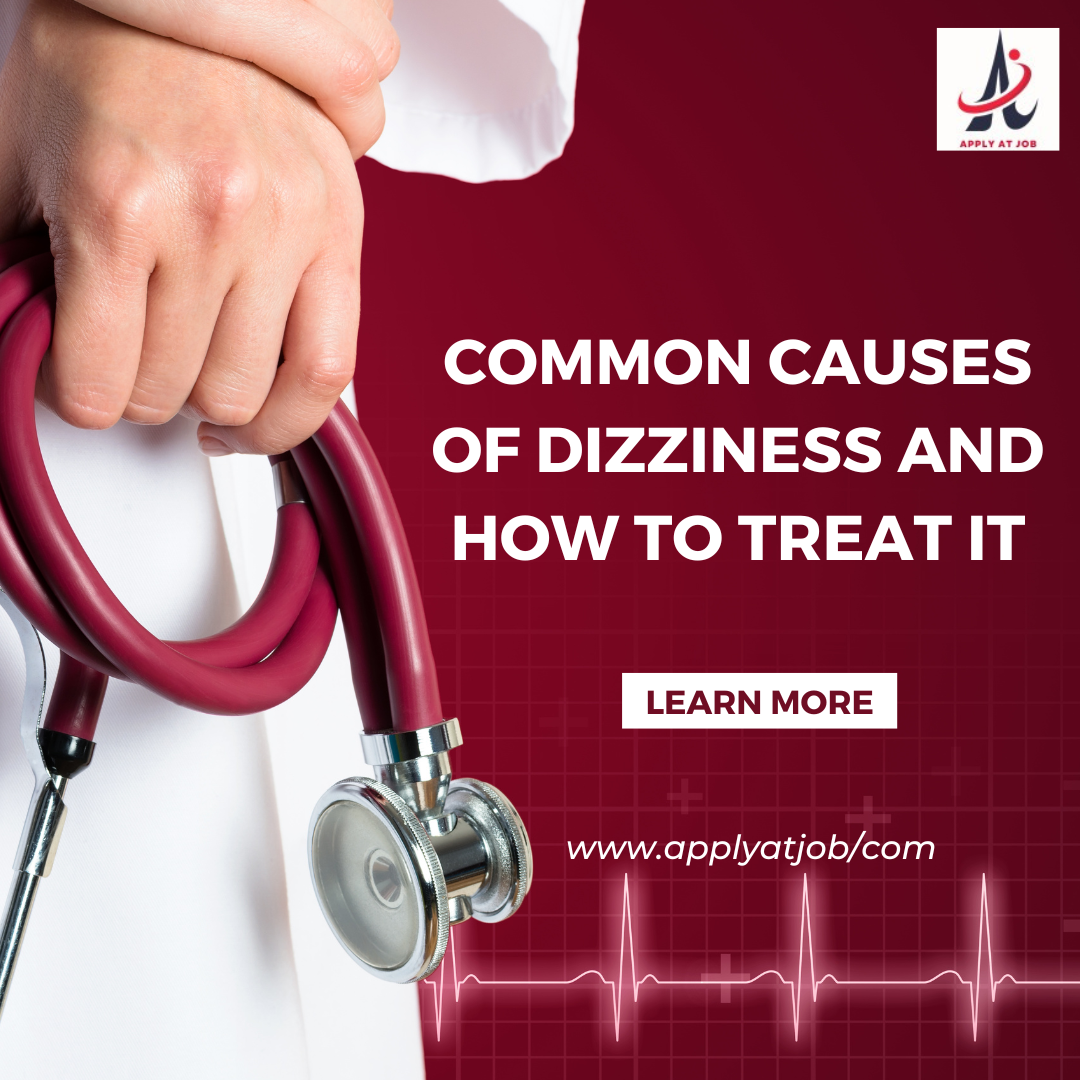
Typical Causes of Lightheadedness and Treatment Options
Feeling dizzy can be characterized as feeling lightheaded, unstable, or as though the room is spinning. It is a frequent complaint that has several potential causes. simply while dizziness is typically not fatal, it can have a big negative influence on your everyday activities since it makes it hard to concentrate, work, or simply get up. This article will discuss the most typical causes of dizziness and offer advice on how to deal with this uncomfortable ailment.
1. Issues with the inner ears (vestibular disorders)
An inner ear problem is one of the most prevalent causes of dizziness since the inner ear is so important to balance.
. Benign Paroxysmal Positional Vertigo (BPPV): The buildup of small calcium particles in the inner ear canals, known as canaliths, is the cause of this illness. BPPV produces sudden, severe episodes of vertigo, particularly when head movement occurs, such when you tilt your head back or get out of bed.
. Meniere's Disease: This inner ear condition is typified by hearing loss, tinnitus, and vertigo (a spinning sensation) attacks. In the inner ear, an irregular accumulation of fluid is the cause of Meniere's disease.
2. Hypotension (low blood pressure)
Lightheadedness or dizziness can result from a sudden decline in blood pressure.
. Postural hypotension: Also referred to as orthostatic hypotension, this condition is characterized by an abrupt drop in blood pressure following an abrupt rise in height. Those who are older and use specific drugs, such those for high blood pressure, are more likely to experience it.
. Dehydration: Not getting enough fluids can cause the blood volume to decline, which can result in low blood pressure and lightheadedness.
3. Stress and Anxiety
Anxiety and panic episodes are examples of mental health disorders that can exacerbate dizziness.
. Hyperventilation: People frequently begin breathing quickly when they are anxious or panicked, which causes hyperventilation. This imbalance between carbon dioxide and oxygen in the body can lead to lightheadedness, dizziness, and even fainting.
. Psychological dizziness: Even in the absence of a medical cause, anxiety can give rise to a feeling of unsteadiness or floating.
4. Drugs
As a side effect, dizziness can be brought on by several drugs, particularly those that impact the neurological system or blood pressure.
. Common drugs: Antidepressants, sedatives, beta-blockers, diuretics, and blood pressure medicines are known to produce lightheadedness or dizziness in certain people.
. Polypharmacy: Especially in older persons, taking many drugs might raise the risk of adverse effects including dizziness.
5. Low red blood cell count
Dizziness can result from anemia, or a deficiency of healthy red blood cells that transport oxygen throughout the body.
. Symptoms: Anemia frequently manifests as weakness, exhaustion, pale complexion, and shortness of breath in addition to dizziness.
. Causes: Common causes of anemia include iron deficiency, chronic illness, and vitamin B12 insufficiency, all of which can exacerbate lightheadedness.
6. Headaches
Severe headaches known as migraines may cause vertigo or dizziness as well.
. Vestibular migraines: Certain migraineurs may also have vestibular symptoms, such as imbalance, vertigo, and dizziness, even in the absence of a headache.
. Triggers: Stress, sleep deprivation, certain meals, hormone fluctuations, and harsh lights are often reported migraine triggers.
7. Hypoglycemia, or an imbalance in blood sugar
Hypoglycemia, or a dip in blood sugar, can make individuals feel lightheaded, especially those with diabetes who use insulin or other blood sugar-lowering drugs.
. Symptoms: Hypoglycemia can produce shakiness, sweating, disorientation, and weakness in addition to dizziness.
. Causes: Low blood sugar can be brought on by skipping meals, undereating, or exercising without enough energy.
8. Heart Problems
Additionally, dizziness may indicate underlying cardiac issues.
. Arrhythmias: An irregular heartbeat, or arrhythmia, can result in inadequate cerebral blood supply, which can induce lightheadedness or fainting.
. Heart attack: Dizziness may also indicate a heart attack, especially when accompanied by nausea, shortness of breath, arm or jaw discomfort, or chest pain.
Conclusion:
Many different illnesses can induce dizziness, ranging from minor inner ear issues to more significant health issues including heart disease or stroke. For a treatment to be successful, the underlying reason must be determined. You should consult a doctor if your dizziness is severe, ongoing, or accompanied by other unsettling symptoms. Most cases of dizziness may be successfully treated with the correct diagnosis and care, giving you back your equilibrium and enhancing your quality of life.
You can visit our site: Applyatjob.com
https://applyatjob.com/hiring-employee
https://applyatjob.com/jobs




